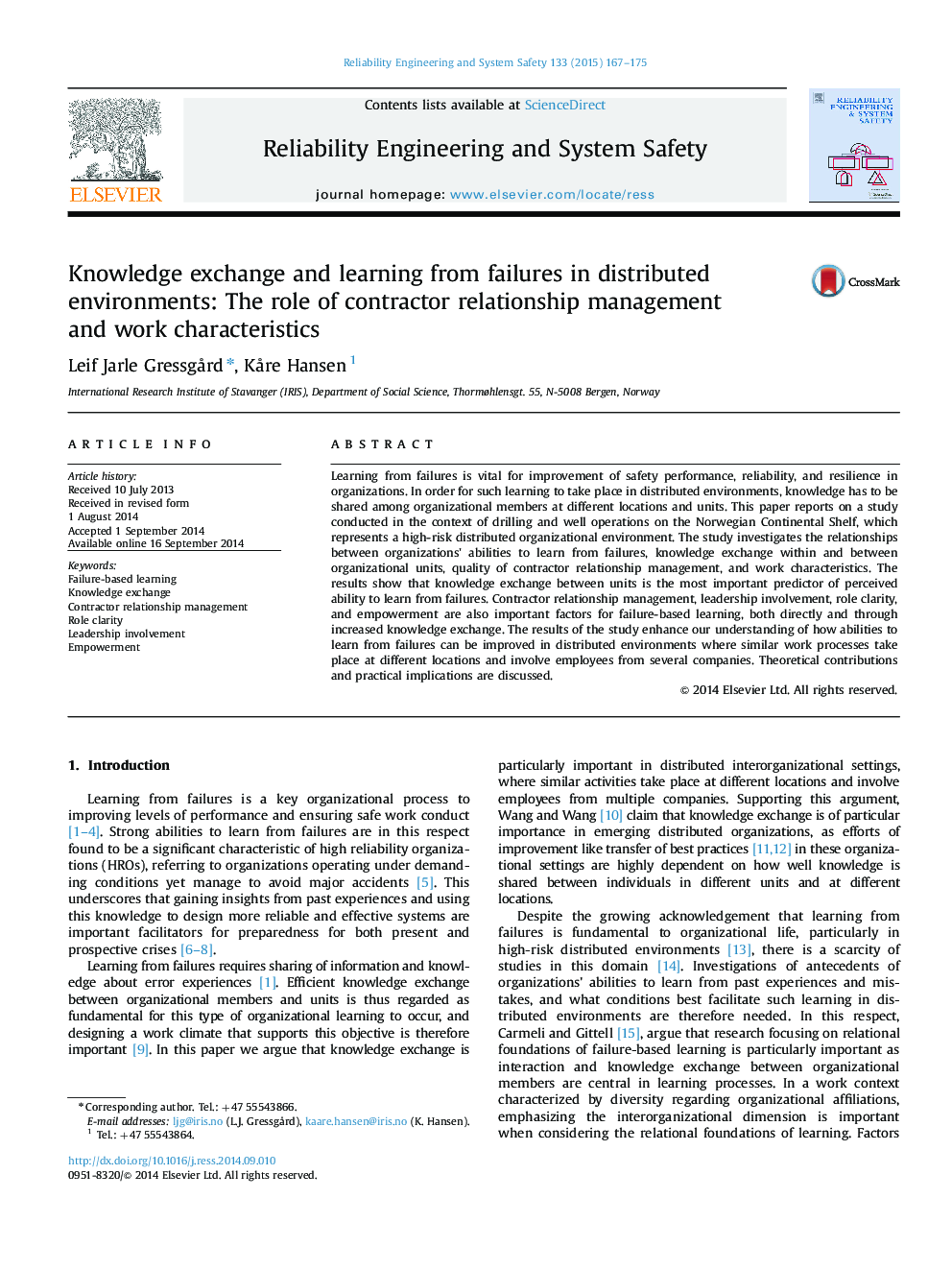| Article ID | Journal | Published Year | Pages | File Type |
|---|---|---|---|---|
| 807783 | Reliability Engineering & System Safety | 2015 | 9 Pages |
•We investigate factors affecting failure-based learning in distributed environments.•Knowledge exchange between units is the most important predictor.•Contractor relationship management is positively related to knowledge exchange.•Leadership involvement, role clarity, and empowerment are significant variables.•Respondents from an operator firm and eight contractors are included in the study.
Learning from failures is vital for improvement of safety performance, reliability, and resilience in organizations. In order for such learning to take place in distributed environments, knowledge has to be shared among organizational members at different locations and units. This paper reports on a study conducted in the context of drilling and well operations on the Norwegian Continental Shelf, which represents a high-risk distributed organizational environment. The study investigates the relationships between organizations׳ abilities to learn from failures, knowledge exchange within and between organizational units, quality of contractor relationship management, and work characteristics. The results show that knowledge exchange between units is the most important predictor of perceived ability to learn from failures. Contractor relationship management, leadership involvement, role clarity, and empowerment are also important factors for failure-based learning, both directly and through increased knowledge exchange. The results of the study enhance our understanding of how abilities to learn from failures can be improved in distributed environments where similar work processes take place at different locations and involve employees from several companies. Theoretical contributions and practical implications are discussed.
